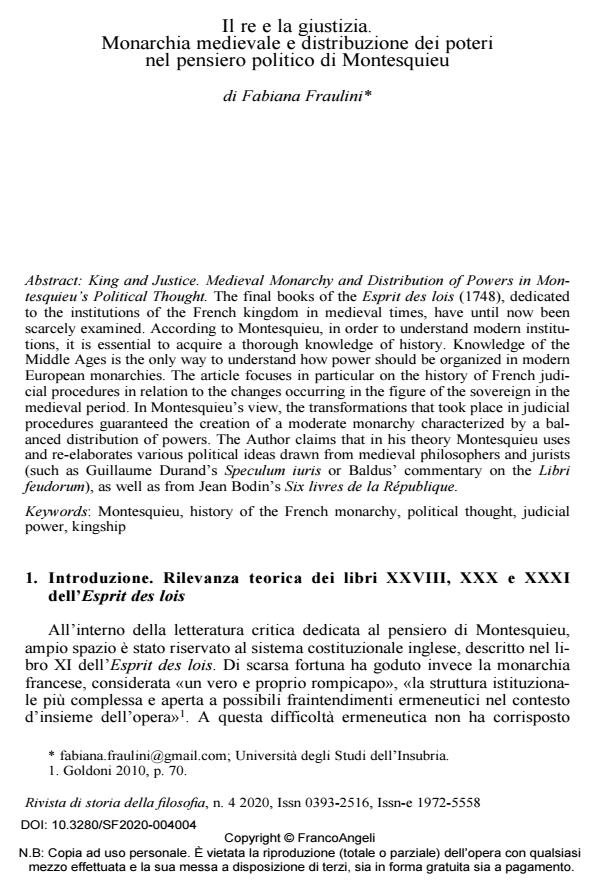King and Justice. Medieval Monarchy and Distribution of Powers in Mon- tesquieu’s Political Thought.
Journal title RIVISTA DI STORIA DELLA FILOSOFIA
Author/s Fabiana Fraulini
Publishing Year 2020 Issue 2020/4
Language Italian Pages 16 P. 689-704 File size 197 KB
DOI 10.3280/SF2020-004004
DOI is like a bar code for intellectual property: to have more infomation
click here
Below, you can see the article first page
If you want to buy this article in PDF format, you can do it, following the instructions to buy download credits

FrancoAngeli is member of Publishers International Linking Association, Inc (PILA), a not-for-profit association which run the CrossRef service enabling links to and from online scholarly content.
The final books of the Esprit des lois (1748), dedicated to the institutions of the French kingdom in medieval times, have until now been scarcely examined. According to Montesquieu, in order to understand modern institu- tions, it is essential to acquire a thorough knowledge of history. Knowledge of the Middle Ages is the only way to understand how power should be organized in modern European monarchies. The article focuses in particular on the history of French judicial procedures in relation to the changes occurring in the figure of the sovereign in the medieval period. In Montesquieu’s view, the transformations that took place in judicial procedures guaranteed the creation of a moderate monarchy characterized by a bal- anced distribution of powers. The Author claims that in his theory Montesquieu uses and re elaborates various political ideas drawn from medieval philosophers and jurists (such as Guillaume Durand’s Speculum iuris or Baldus’ commentary on the Libri feudorum), as well as from Jean Bodin’s Six livres de la République.
Keywords: Montesquieu, history of the French monarchy, political thought, judicial power, kingship
Fabiana Fraulini, Il re e la giustizia. Monarchia medievale e distribuzione dei poteri nel pensiero politico di Montesquieu in "RIVISTA DI STORIA DELLA FILOSOFIA" 4/2020, pp 689-704, DOI: 10.3280/SF2020-004004